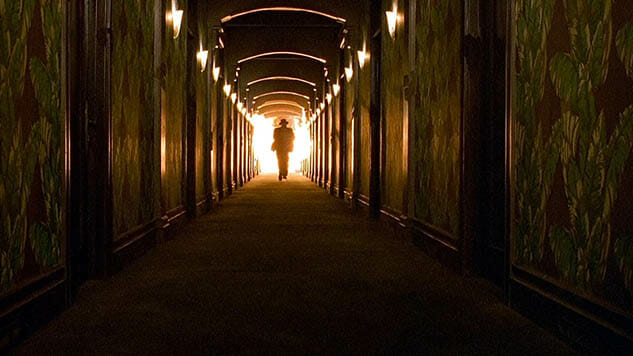I’ll Show You the Life of the Mind: 5 Horror Movies for Writers

Dean Koontz once said, “Writing a novel is like making love, but it’s also like having a tooth pulled.” For a writer, there’s seldom anything more satisfying than the rare moment when the seemingly random series of words, when combined, create something we know in our hearts to be unique, poignant, gripping. It’s an out-of-body experience, the orgasmic “making love” part of the whole ordeal, which otherwise mostly feels like dental surgery. The internal conflict of a writer’s mind, like any artist’s in any “industry,” is plenty: Is this any good? Will anyone like it?”, “Am I wasting my life?”, “Am I even saying anything new?” With such a Sisyphean existence, it’s no wonder a lot of writers are as neurotic as they are. All work and no book deal makes Jack a dull boy. It makes sense that there are so many horror movies for writers.
Since most movies have screenplays, which happen to involve writers, it’s no surprise to see these fears bubble up to the surface. Bedtime boogeyman stories for young, aspiring writers, or cautionary tales for those already trapped in the industry’s web: Turn away from the blank page you’ve been staring at for months, and let’s take a spooky look at five great horror movies for writers at least.
(These aren’t actual horror films about writers, or actual horror films at all, so don’t expect to see The Shining or Misery here. Rather, these works are more dramas than anything else, but tell stories that ruthlessly pick at the innermost insecurities and fears of those who toil for the written word.)
-

-

-

-

-

-

-

-

-

-

-

-

-

-

-

-

-

-

-

-

-

-

-

-

-

-

-

-

-

-

-

-

-

-

-

-

-

-

-

-













































